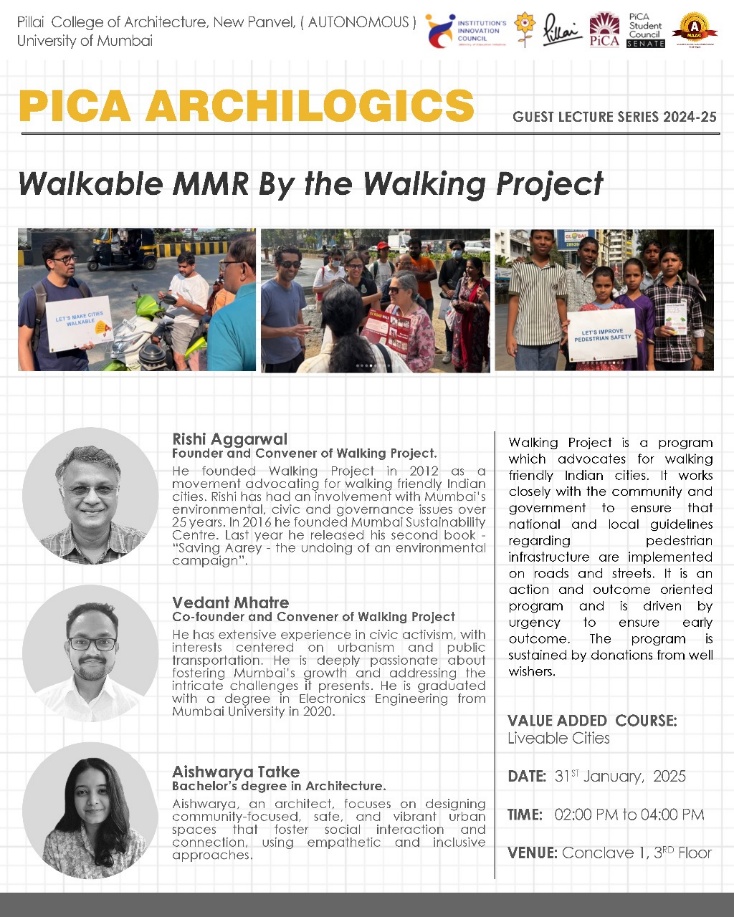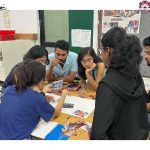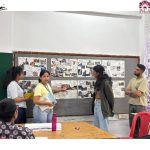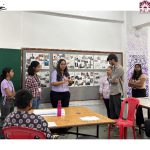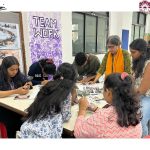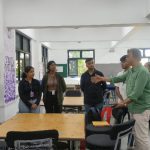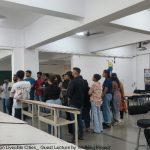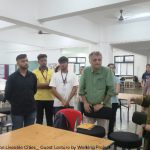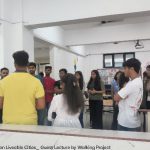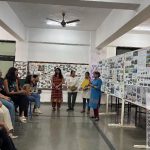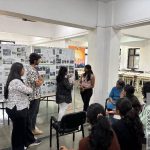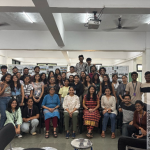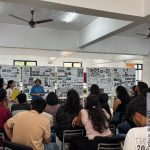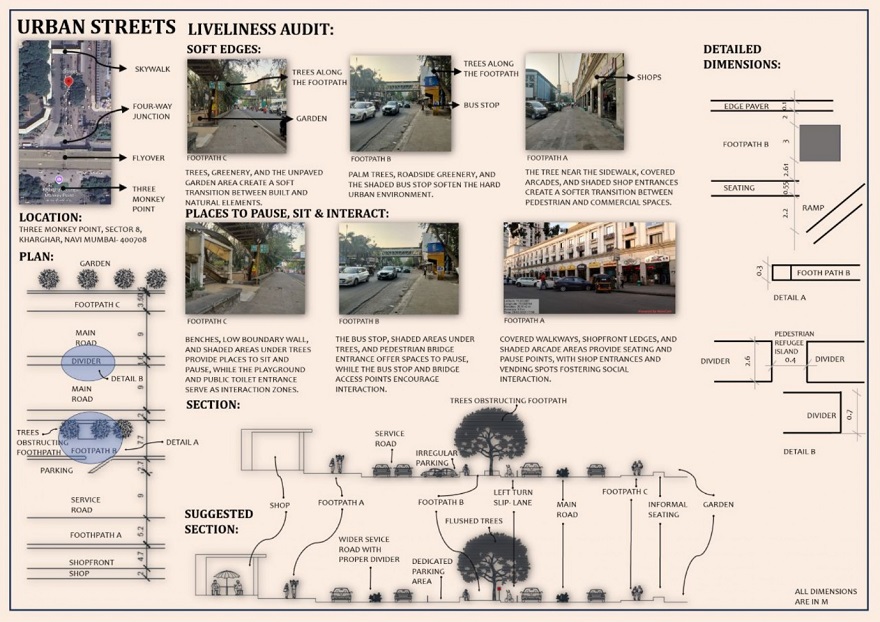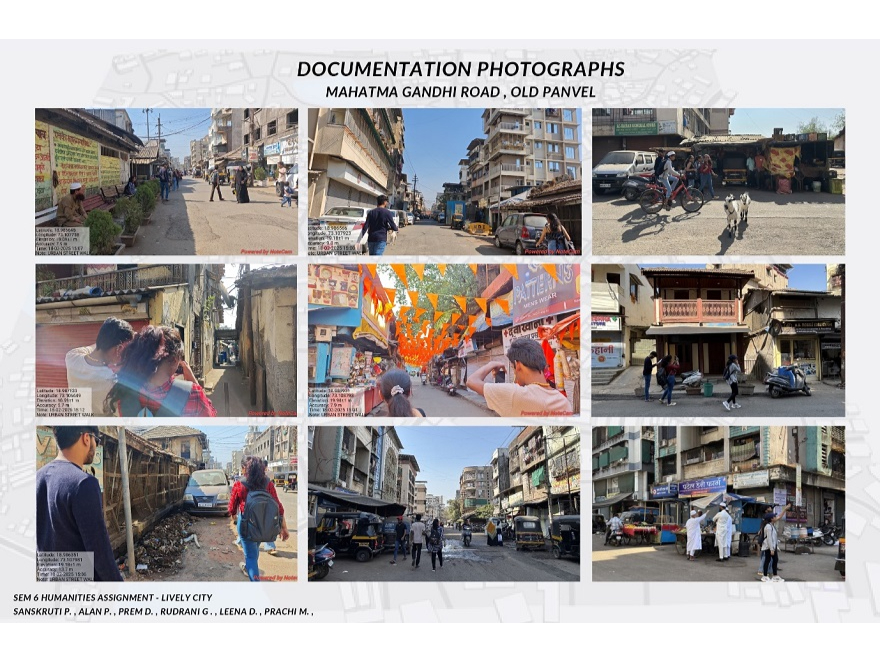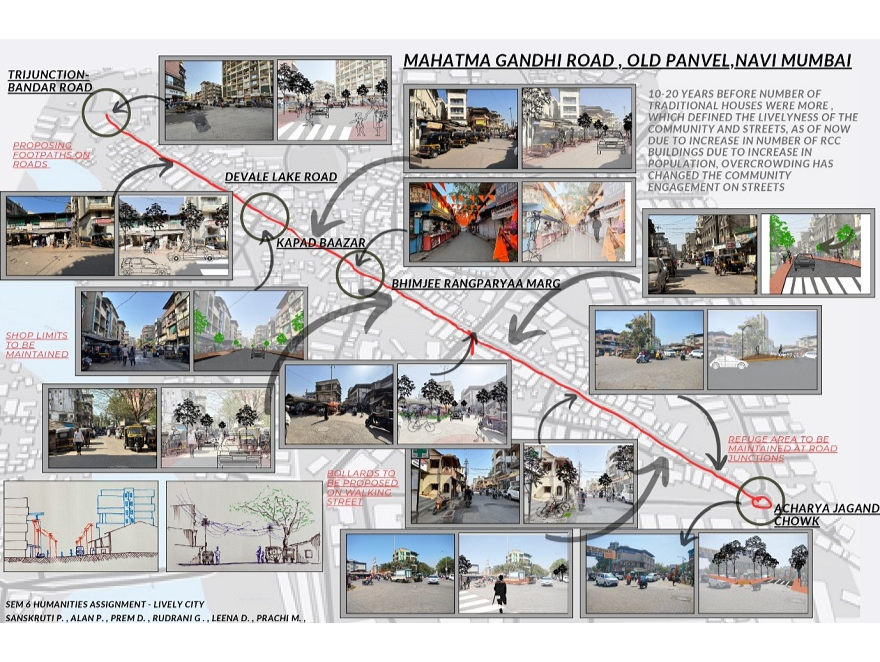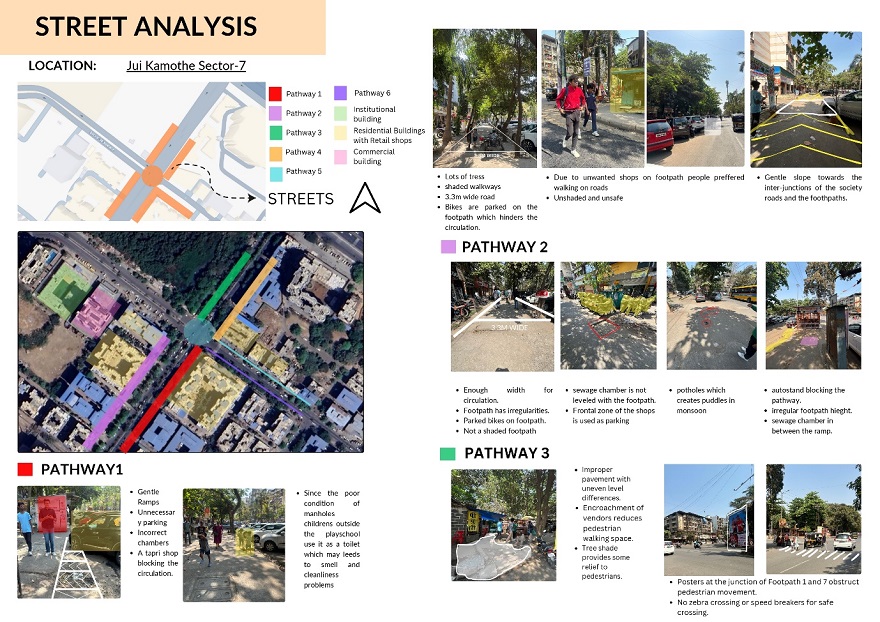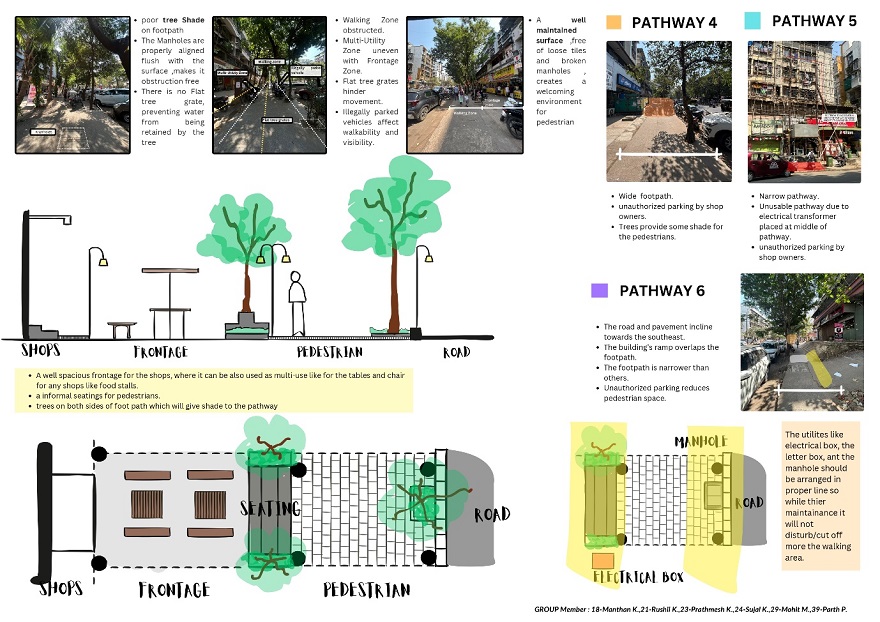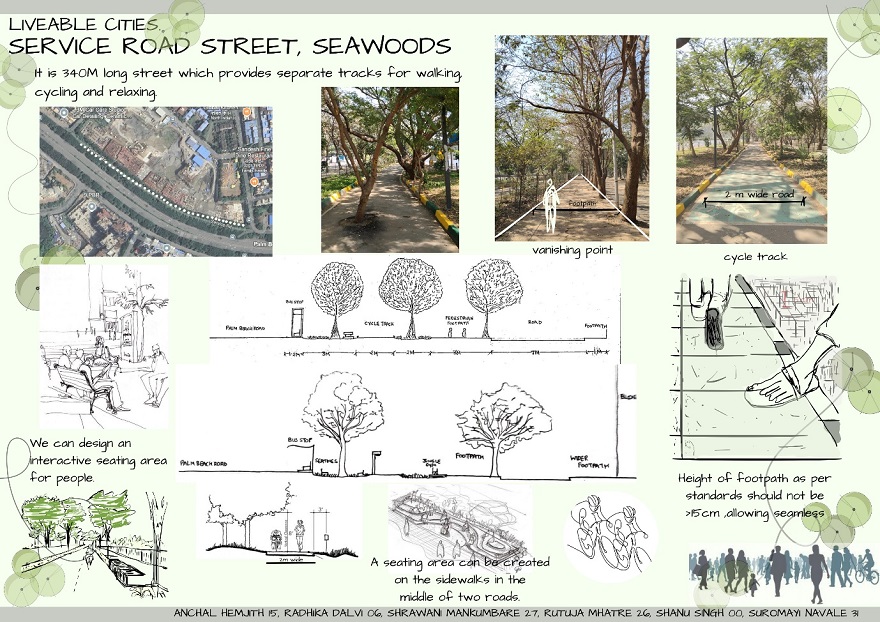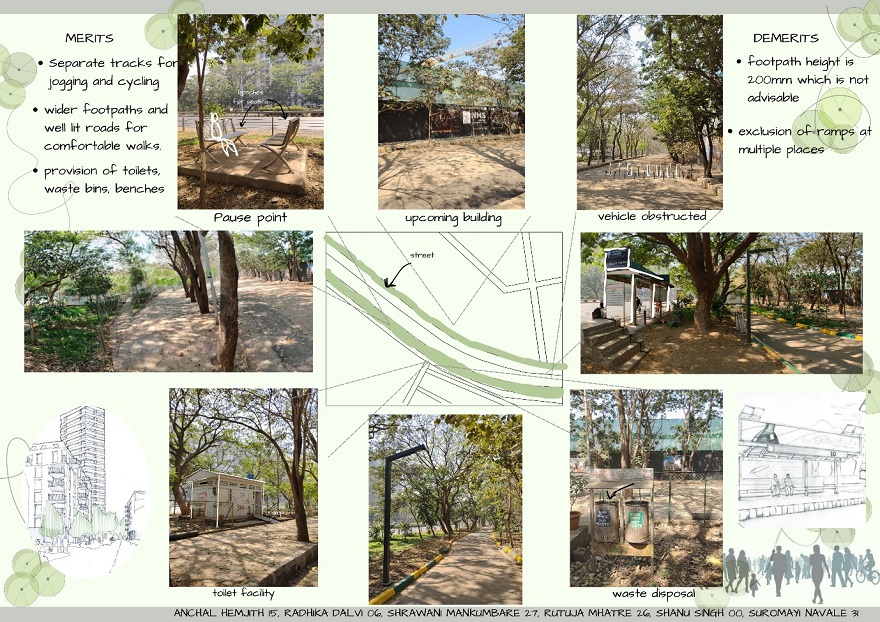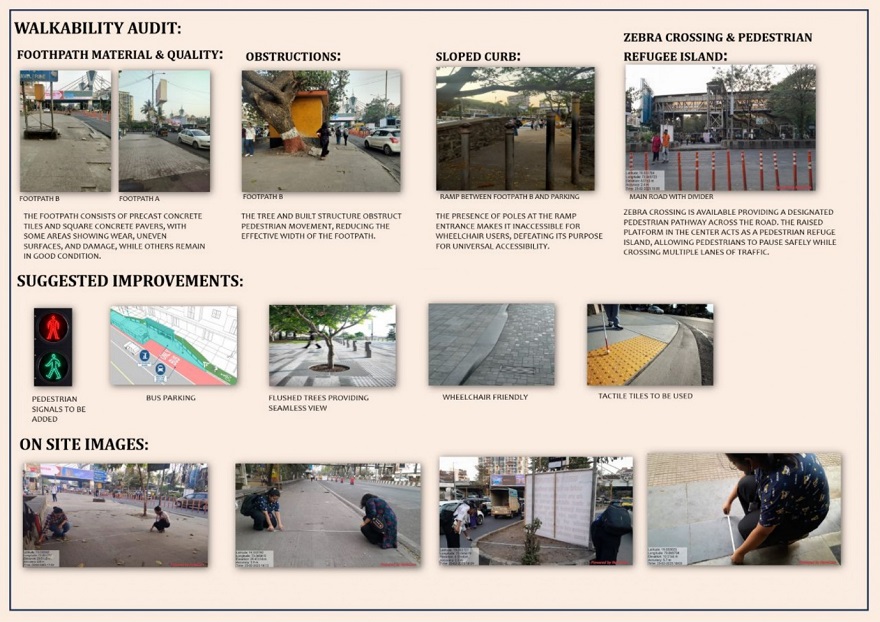| Course Title | Liveable Cities |
| PiCA Faculty Co-ordinators | Prof. Smita Dalvi Prof. Ajita Deodhar Prof. Jagrati Sehgal Prof. Snehal Ghag |
| Resource Faculty | Prof. Smita Dalvi (In-house) Mr. Rishi Aggarwal, Mr. Vedant Mhatre and Ms. Aishwarya Tatke from the NGO ‘Walking Project’ (Guest Faculty) |
| Duration- Dates and Total Hours | 6-Days, 30 Hours total |
| Total number of student participants | Attendance sheets day-wise |
Resource Faculty
Dr. Smita Dalvi is Professor at Pillai College of Architecture. She is engaged in Urban Research and has been teaching Humanities courses in PiCA and guest lecturing in several institutes in Mumbai and other parts of the world.
Guest Faculty: Guest Faculty is drawn from the NGO ‘Walking Project’
About Walking Project
Walking Project is a program which advocates for walking friendly Indian cities. It works closely with the community and government to ensure that national and local guidelines regarding pedestrian infrastructure are implemented on roads and streets.
Mr. Rishi Aggarwal
Rishi is the founder and convener of Walking Project. He founded Walking Project in 2012 as a movement advocating for walking friendly Indian cities. Rishi has had an involvement with Mumbai’s environmental, civic and governance issues over 25 years.
Mr. Vedant Mhatre
Vedant is the co-founder and convener of Walking Project. He has extensive experience in civic activism, with interests centered on urbanism and public transportation.
Ms. Aishwarya Tatke
Aishwarya is an architect interested in the interaction of people with the built and unbuilt spaces in the environment. She is keen on analysing the design of urban spaces that shape our daily experiences; influencing how we navigate, interact, and connect with our environment.
Course Objectives
This course aims to explore the concept of liveable cities, focusing on key aspects such as quality of life, social and environmental sustainability, and the relationship between architecture and the urban fabric
Course Description
This interdisciplinary course introduces students to the theory and practice of designing cities that prioritize people’s needs, focusing on enhancing walkability and urban quality of life. The course includes a series of lectures, discussions, and workshops with experts in the field, including Prof. Smita Dalvi, and members of the Walking Project, Walkable MMR. Students explored concepts from the book Cities for People by Jan Gehl, investigate the challenges of pedestrian infrastructure, and engaged in field-based research through mapping and analysis of walkability in their own neighbourhoods. By the end of the course, students will have a comprehensive understanding of urban dynamics, pedestrian systems, and how they contribute to the creation of liveable cities.
Course Outcome
- 1. Students will understand the concept of Liveable Cities.
- 2. Students will learn to apply theoretical knowledge to real-world contexts.
- 3. Students will be able to analyse methods to assess walkability and pedestrian infrastructure.
- 4. Students will learn capacity to map urban infrastructure that either enhances or detracts from walkability.
- 5. Students will be able to assess and identify scope in urban spaces for walkability quotients.
Course Title: Liveable Cities
Course Plan
| Date | Description |
| 10th December 2024 | Concepts of Liveable Cities: Lecture by Prof. Smita Dalvi on the topic.
Beginning of research by students in groups of 6. |
| 17th December 2024 | Collage-Making: Exploring the concepts of ‘Cities for People’ Reading and making a response to the book—'Cities for People’ by Jan Gehl, Island Press (2010). The students to be divided in groups of 6 - preparing their response and presenting it in the form of 2 collages. The exercise to be supervised by Prof. Smita Dalvi and Prof. Snehal Ghag |
| 31st January 2025 | Walkable MMR: Guest Session by Walking Project India An interactive workshop by the NGO Walking Project India, and their representatives to cover the following points:
|
| 14th February 2025 | Mapping Walkability: On-field observation and Analysis Students in groups of 6 to select a street in their neighbourhood and carry out mapping to analyse the following factors:
The exercise to be supervised by Prof. Ajita Deodhar and Prof. Jagrati Sehga |
| 28th February 2025 | Display, Presentations, Discussion, Evaluation of Street Mapping Collating of collected data, analysing and composing in a common format to create presentation sheets. Display of the collages and mapping exercise in the form of an exhibition in the classroom. Presentation by each group followed by discussion and debate. Summing-up remarks by the faculty and students |
Student Work
